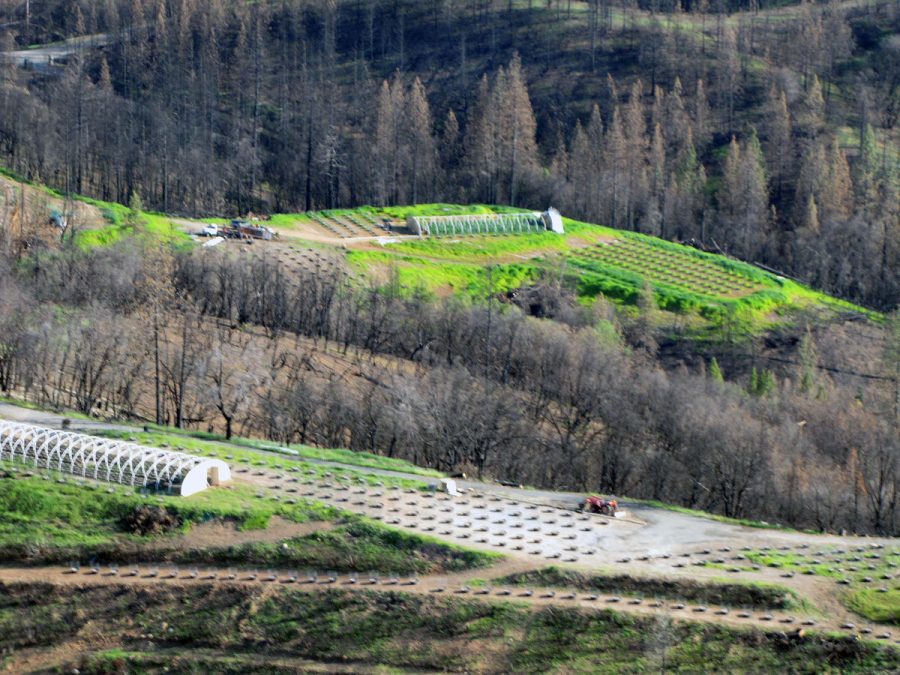California county faces backlash for imposing cannabis cultivation ban after collection millions in taxes from cannabis farmers
On Jan. 10, the Calaveras County Board Supervisors declared all commercial cannabis farms illegal after May 1, sending the whole county of 45,000 residents and over 1,600 commercial cannabis growers into completely chaos.
Though the county was always divided between conservative residents and those who supported cannabis, it started to regulate commercial cannabis production in 2016. In June 2016, the Calaveras County had collected $3.7 million in just registration fees from over 700 cannabis cultivators of $5,000 each.
So when Measure C was initiated during the election in 2016 to impose cultivation taxes on both indoor and outdoor farms , voters approved happily at the thought of the millions the county would collect from tax revenue. And it did collect millions. In 2017, the county collected $7.5 million in Measure C cultivation taxes, with more revenue due from November.
Even such a marginal profit wasn’t going to keep Calaveras County from embracing commercial cannabis farms for too long, however, with over 53 percent of the county voting against Proposition 64 in the November 2016 election.
Dennis Mills, a supervisor on the board who won through his strong beliefs against cannabis, initiated Measure B that would ban commercial cannabis farms in all of Calaveras County. Though failed initially last October, Mills was able to successfully impose a new ban earlier this month with the help of two other recently elected supervisors.
“This county has repeatedly spoken out against this,” Mills told Leafly. “My district solidly voted down Proposition 64. They solidly voted down Measure D. They wanted an initiative to ban.”
Cannabis cultivators are left furious and out of jobs and money as they spent thousands on registration fees, tax revenue and farmland renovations, among various other cultivation costs and supplies. The ban was placed two months after the county collected another several million in tax revenue from November 2017.
While ban supporters felt little pity for growers who they argued were already gambling their business on cannabis laws and regulations, many cannabis supporters felt cannabis cultivators needed to be reimbursed from injustice served in the form of the ban after the county took millions in tax revenue and fees.
Khurshid Khoja, former general counsel for the California Cannabis Industry Association, feels the county is liable and responsible for refunding taxes collected from cultivators.
“You’ve given people a privilege. You’ve taken their taxes and fees. And now you’re taking that privilege back,” Khoja told Leafly.
While some cannabis cultivators and advocates are fighting to be reimbursed for taxes paid, Calaveras County cannabis farmers like Mark Bolger, 30, who paid over $54,000 in payments to the county in the course of two years, don’t think reimbursement is enough cost for the loss of income they are suffering from without a 2018 growing season.
“The county is saying … you gambled by investing your money. They look at it as if they have no liability, that this is on us,” Bolger told Leafly. “No way. We’re not looking to be awarded damages. We want our fucking jobs back.”
Some farmers are getting burnt out from the long pursuit and leaving while others continue in hopes to see a change in the current legislation of commercial cannabis farms.
“I don’t see any purpose in pursuing this, given that the county has decided to ban,” Elizabeth Denhart, Calaveras County farmer, told Leafly. “I am selling my property. I am pulling my children out of school and leaving.”
Rob Ervin, Calaveras County farmer who quit his trucking business to grow cannabis, however, is staying positive and persistent in his pursuit to grow cannabis in the county.
“We think we have some of the best ground here and best temperatures to grow,” Ervin told Leafly. “This is phenomenal. For us not to be part of California’s economic future, well, that kind of sucks.”









